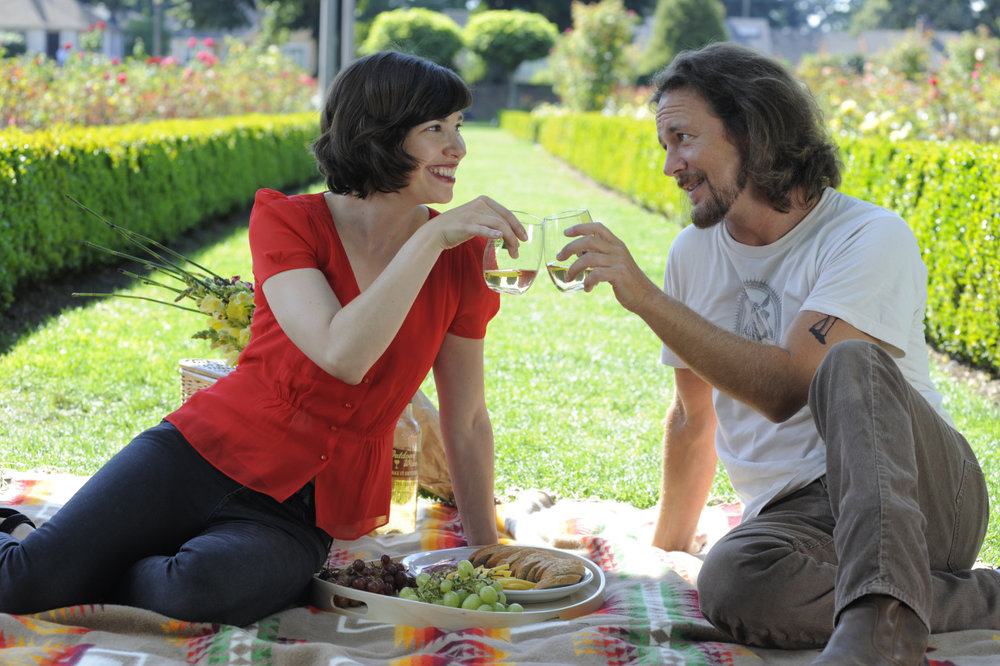
CARRIE BROWNSTEIN: For how many years after you started did you guys do interviews with the media?
EDDIE VEDDER: Well, I think everything changed when we started the second record. I think we still kind of cut down, but we did some then. That’s when everything started feeling really strange. Because that’s when you get the process, at least in our kind of journey, that had that really sharp spike upwards at the beginning. It was kind of a strange feeling of being co-opted, and you were kind of just a product. You’re finding yourself on the cover of “The All-Grunge Special Issue” of something or other, with pullout posters and the whole deal. And you’re thinking, “Well, who are these people? Do I know them?” And not that you’re concerned but, “Do we even get paid for this?” It’s just out there. And the only frightening thing is even to myself this is overexposed. I’m overexposed.
CB: And probably don’t know who you are anymore. Do you ever look at a magazine with yourself in it and just think, “That’s not even me”?
EV: Well, back then, it felt like that. Or going to a Halloween party, and having someone with the pullout poster, he’s cut it out and made it into a mask.
[Both laugh]
CB: Did that happen?
EV: Yeah, yeah. He thought it was going to be funny. But I was way too sensitive at the time. It’s just like, ordinarily it might be funny, but it’s not right now. And it was hard to keep a sense of humor about it. It felt like, I think there’s a line in Death of a Salesman, “You just can’t eat the orange and leave me the peel.” And there were also just ideological issues that came up with either the music-television station or something else, where they had plans and they did things a certain way, and I just kind of didn’t want to do them that way. So in order to say no to a few people, you kind of had to say no to everybody.
CB: Did you guys have a sense of what kind of music you were playing before it was labeled “grunge”? I feel like right now there are so many genres of music; it’s become even more compartmentalized. And then this label “grunge” was placed on this certain sound coming out of Seattle. How did that feel to have a genre created for you by outsiders, instead of naming your own?
EV: I think that I felt secure, because I felt that we had our own musical language that...
You have reached your article limit
Sign up for a digital subscription and continue reading all new issues, plus our entire archives, for just $1.50/month.
Already a subscriber? Sign in




